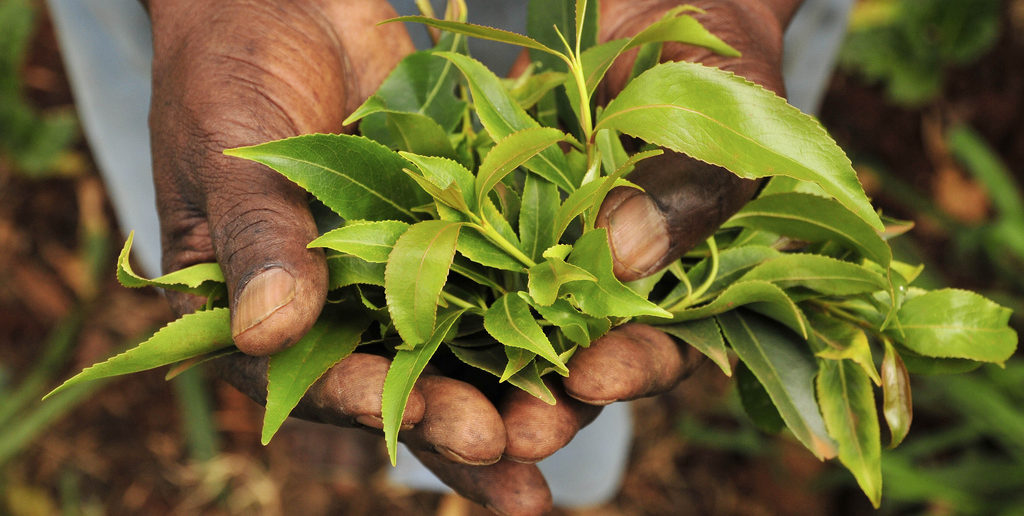These days, for the British government, the public enemy number one seems to be a substance that renders the user paranoid, violent or aphasic, trapping him in an endless cycle of dependence that makes him unable to properly function as a useful member of society. No, I’m not talking about drinking or binge watching Game of Thrones, but about a fairly obscure African plant called khat, a favourite pastime among the Ethiopian, Yemeni and Somali communities.
These communities have been known to indulge in the practice of chewing the said herb for hours on end both as a cultural tradition, spanning back hundreds of years, and as a way to unwind, have woken up on June 24 to find khat listed as a class C drug, alongside Xanax and other similar substances ending in –zepam. Theresa May decided to move ahead with the ban, proposed last year as part of a wider plan meant to clamp down on drug usage in the UK, despite serious opposition from both experts and the international community alike. As it turns out, from Portugal to Uruguay to Colorado, a paradigm shift is well underway, changing the narrative away from prohibition of drugs and towards embracing decriminalization.
Earlier this year, the Conservative think tank Bright Blue issued a Modernisers’ Manifesto meant to spur the internal ideological debate before the 2015 General election campaign. One of its most sensible aspects was Britain’s drug policy reform. The researchers urged the Tories to stop fighting “Nixon’s futile war on drugs” and promote instead a libertarian-type policy of decriminalization. Indeed, Cameron, when he was elected the leader of his party, dabbled with the idea of moving Britain away from its current hard-line approach on drugs. So what’s stopping the UK from joining the “Green Revolution”?
When backbenchers hop in the driver’s seat
Cameron’s reformist instincts were smothered early on in his term, upon realizing the outrage that it would have created in the ranks of his fellow backbenchers as well as making for “hostile headlines”. Meanwhile, while the Tories are preoccupied with banning khat, both the Liberal Democrats and UKIP are once again taking lead, by advocating for an overhaul of the current system, seen as dysfunctional and counter-intuitive. Deputy Prime Minister Nick Clegg, who has already promised to set up a Royal Commission to look into Britain’s drug laws, has accused the Conservatives of failing to look “imaginatively” for future solutions to the drug problem, calling for them to admit defeat in the war of drugs.
Critics and advocates are split arguing over the long-term effects khat chewing has on the user. While some say it’s completely harmless and have described its effectsas being “not unlike a gin and tonic mixed with a double espresso”, others (read the Tories) have pointed out that in the long run it renders the consumer aphasic, paranoid or even violent. But then again, similar claims can be made about alcohol consumption and yet we don’t see the government clamouring for a repeat of the infamous Volstead Act of 1920.
The move appears to go against all logic: the ban will likely fuel racial tensions, given that the law predominately targets the Ethiopian, Somali and Yemeni communities, which are already among some of the most discriminated against groups in Britain. Economically, the impact will be even worse, as it will cost the state budget some couple million pounds in taxes while threatening the livelihood of the already-troubled African producing countries. Indeed, a group of Kenyan MPs has said that two million people stand to lose their jobs, especially in the Meru region of the country. Last year, around $25 million worth of this plant was imported from Kenya, a significant boon for the African country.
With the law in place, it is more than probable that the farmers will be forced to turn to the infamous al-Shabaab terrorist organization, effectively pushing the disenfranchised into the hands of those the government claimed was targeting with the ban.
MP’s and community leaders both have raised concerns the ban will likely ignite further racial tensions in Britain’s communities and alienate people that already feel marginalized. And all for what? To ban a relatively harmless plant that a small minority of the British population likes to chew in peace? Never mind the fact that the plant has been legally imported into Britain for the past 60 years or that a report from the government’s own Advisory Council on the Misuse of Drugs from February concluded that “it would be inappropriate and disproportionate” to ban khat.
When ideology gets in your eyes
By criminalizing drugs and their users, the War on Drugs has created a situation in which blacks and ethnic minorities are disproportionally targeted. Non-whites and individuals of certain ethnic origins – Jamal Osman, an award winning journalist, made this point in a Guardian editorial – have increasingly come to feel that their privacy and personal space is being violated as they are unfairly targeted based on their skin colour. Interviews from the participants in the London riots confirm these sentiments, with many claiming that their hatred of being marginalized and unfairly targeted led them to partake in the riots as a way of releasing their built up anger.
While the War on Drugs has a vast array of unintended consequences for the economy of our country and the health of users, the racial divisions it has created within communities should not be something taken lightly. Its about time Britain and our government opens its eyes to the reality: current prohibition policies have failed and have led to devastating social and economic consequences.
Drugs have always been a polarizing affair for any society, galvanizing racial and social tensions. The khat dispute is just the latest instalment in a long-running debate. It is high time for the UK, as a society, to initiate a cross-party dialogue and revamp its failed drug policies. Ideas such as the ones expressed by Nick Clegg and Nigel Farage could only succeed with the support with both the Tories and Labour. Only with a cool head and a “keep calm attitude” can our country take charge of this contentious issue and realize the shared goal of a fairer society.





1 Comment
Khat destroys Yemen and Somalia, wasting of water, productivity, agriculture, and even when they are in Britain Khat isolated the Yemenis and Somali communities.. As a yemeni, im thanking the UK for banning it, and hoping this banning will make these 2 communities doing something more useful in their lives and that can help their poor countries.